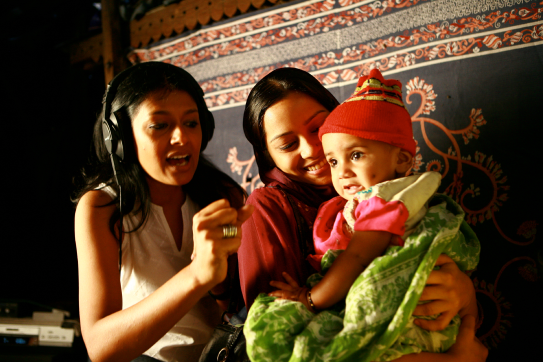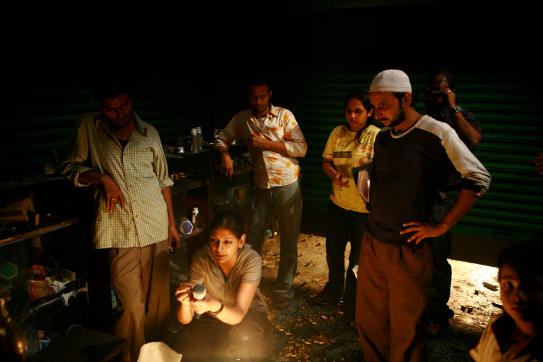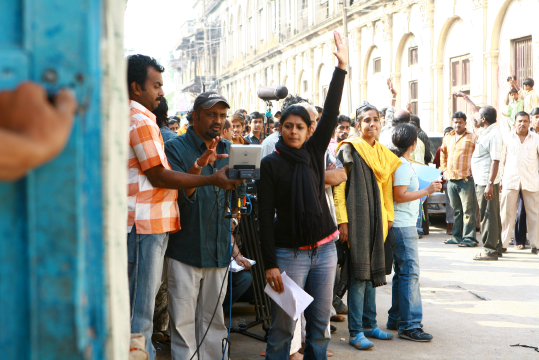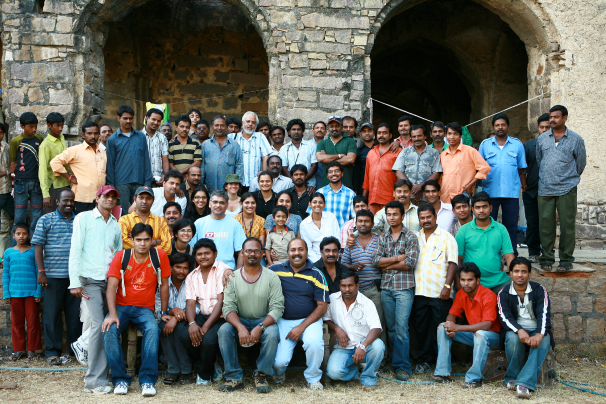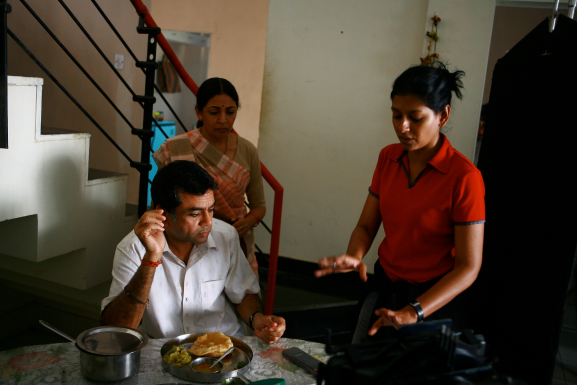The forgotten empathy
- April 1, 2009
‘Firaaq’ is an Urdu word which means both separation and quest. I chose to call my film on the aftermath of the Gujarat riots that, because it reminds us that we have a choice over how we want to see what is around us – a world rife with separation and division, or a quest for peace and justice. In fact, the one choice we can make is to choose our own response to violence. And I intended Firaaq to be a small mirror that shows us not only who we are, but also who we can be.
For those who have not seen Firaaq, it is set a month after the Gujarat carnage of 2002 and deals with five different relationships and the impact of violence on their lives. With no overt violence shown, the story traces the emotional journeys of ordinary people – some who are victims, some perpetrators and some who choose to watch silently. The responses I have been getting have more than compensated the innumerable challenges I have faced since its inception. The film has no overt message that it prescribes. One of the viewers emailed, “Not often does one come across a story that so subtly drifts inside you and raises questions you have been afraid to ask.” That is all I have attempted to do. What has overwhelmed me are the responses – their need to engage and share their stories, go into the depths of their feelings, question their own prejudices, surface their own fears, so much so that people wanted to reconnect days later to express the complex emotions that the film evoked in them.
Of course, the film has also evoked other sorts of reactions. There are some who feel that it is “pro-Muslim” or that it is “not balanced.” It clearly states at the beginning of the film that Firaaq is a work of fiction based on a thousand true stories. And I did want it to be true to the context of Gujarat, which sadly, was a carnage and not a riot. So if the reality itself is skewed, it would not be correct to balance it artificially. The blame belongs not to artists who represent that reality but to those who created that imbalance in the first place. In any case, Firaaq is not about pointing fingers. It looks at the tragedy from the perspective of the victims, and doesn’t revel in the heinous crimes of the perpetrators, even though they did occur. Above all, I wanted to evoke empathy, an emotion that we are fast forgetting.
I have also been asked the predictable question “why Gujarat and not Kashmir?” As a storyteller, I wanted to respond to the world around me. The Gujarat carnage happened and affected me at a stage in my creative life where I could respond to it directly. Had I been at the same stage, say, when the Sikh genocide happened in Delhi or when the exodus of Pandits from Kashmir was forced upon, I probably would have made films concerning them. But there is a more fundamental issue at stake here: Muslims in Gujarat, Sikhs in Delhi and the plight of the Kashmiri Pandits are not competing tragedies over which sympathies must be traded. Worse still are those who try to use the suffering of one set of victims to justify or rationalise the suffering of others. Two wrongs don’t ever make a right.
A feature film needs a context but it doesn’t mean that it cannot go beyond it. In fact, the reason why people have been able to connect with Firaaq in different parts of the world is that it has resonated with their contexts. I met a Sri Lankan Tamil who said this was a film about the Tamils and the Sinhalas. A man from Korea talks about the Japanese prejudice and the woman from Cyprus talks about the divide with the people of Turkey and so on.
Human emotions and predicaments are universal, but there is no shying away from the fact that it deals with a deep-rooted divide in India that is surfacing more than ever. So now it is the choice we all need to make between the walls of separation and the quest for peace. Firaaq is a means to an end, a journey that began seven years ago. Will it reach its end, is for all of us to decide.

